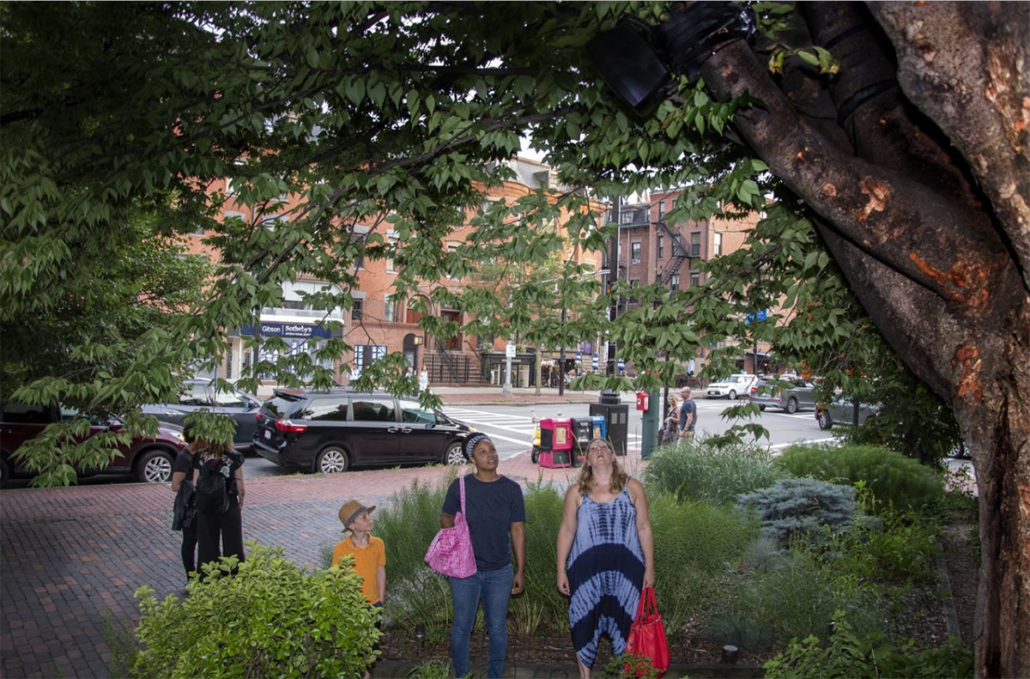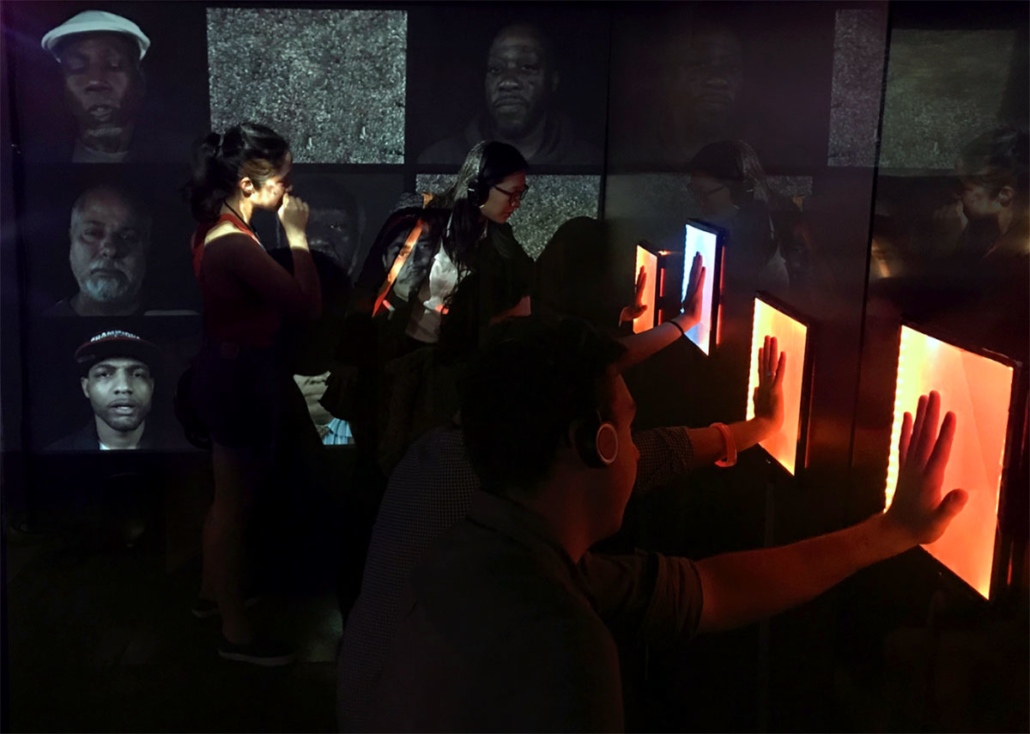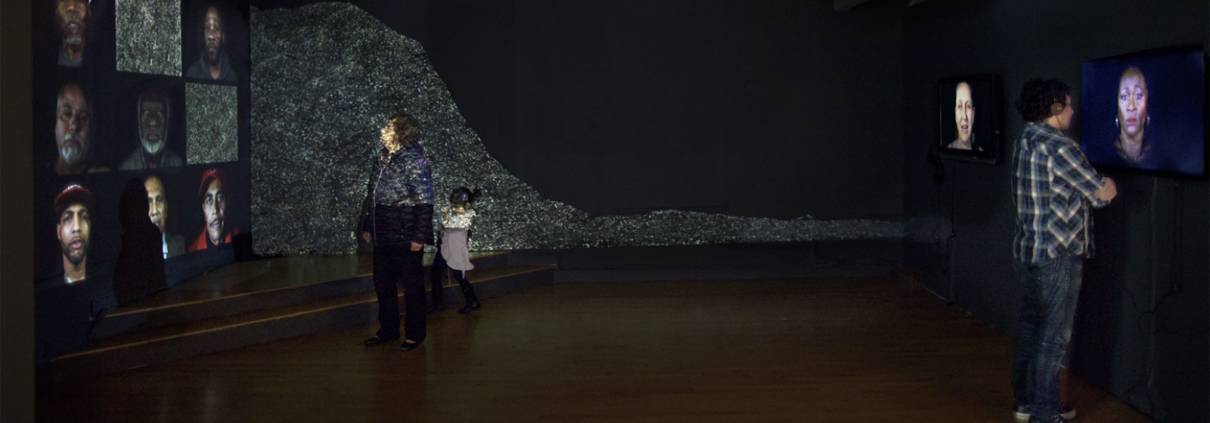Field Notes: A Father’s Lullaby
Take a breath. Close your eyes. Imagine yourself on a busy street corner as a passerby: cars rushing by, vibrating your body from the core of your feet; people in fast motion racing to unknown destinations; a screeching siren and blue flashes of light that disturb even your closed eyes. Do you see a mother caressing her baby’s arm? A man, texting, trips on cracked sidewalk. Do you hear taxis honking their horn loudly, or those two drivers arguing over a parking space? These are layers of memories of a public site.
From July 2018 through October, if you were a passerby on Tremont Street, by the historical city block of Boston Center for the Arts (BCA), you would have heard the voices of men singing lullabies from treetops, waves of sound moving through your body as you moved through the space.

If you paused and got closer to sources of the sounds, motion sensors would trigger another layer of sound, audio documentaries, fragmented narratives, memories of fathers on federal probation. The soft voices, withstanding noise of wind, cars and chatter, demanded your attention and invited you to listen.
This was the first in a series of public sound installations titled A Father’s Lullaby. My hope is to install these in many cities in United States—if possible, simultaneously. Every local site will become a place where the sounds are collected. I will then work with local artists/composers to create a series of sound compositions to be projected at the site. The companion website for the project will offer recordings of the sounds on a virtual map. Over the past two years, the project has included two other participatory public art installations, including a multimedia installation at Villa Victoria Center for the Arts from November-December 2017, and a multimedia installation at HUBweek in October 2018.
Read the full conversation with Rashin Fahandej and fellow artists Halsey Burgund and Andrew Demirjian here: Sound That Surrounds
Consider the public place as a site of collective experiences and for art to emerge without you knowing that it is art. Consider that public art can enable moments of pause, deep thinking, and actions. Consider a public site as a critical site to contemplate social issues, to construct new meanings, new social memories.
A Father’s Lullaby is part of a larger multi-platform, documentary-based project. The project highlights the role of men in raising children and brings attention to the absence of fathers in communities of color as a direct result of mass incarceration. Incarceration impacts the lives of children who are left behind, weighing on women and lower-income families. The cyclical structure of the criminal justice system in the United States is punishing the most vulnerable, and the most poor. As a result, fathers’ absence has become an intergenerational problem that is experienced through the bodies of children and mothers.
A Father’s Lullaby invites all men to participate by singing lullabies and by sharing memories of childhood, home, and father. My approach is what I call the “Poetic Cyber Movement for Social Justice.” It reveals the possibility of mobilizing and bringing together a plethora of voices while utilizing public places and virtual spaces to ignite a more inclusive dialogue in both spaces to effect social change.
In this project, art, new media, data information, and personal accounts come together with underrepresented stories as the focal point.

The project is being developed with community members as creative collaborators, and with many local artists and partner institutions in different stages of the project, including the MIT Open Documentary Lab, Boston Art Commission, Boston Center for the Arts, Federal Probation Office, and The Office of Returning Citizens in Boston.
To collaborate or host this project in your local community please email info@fatherslullaby.org. You can learn more about my work at RashinFahandej.com
This article was commissioned by and originally published on Immerse. It is cross-posted here with permission and much appreciation.


